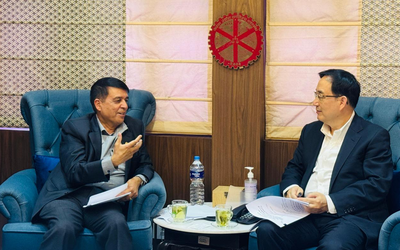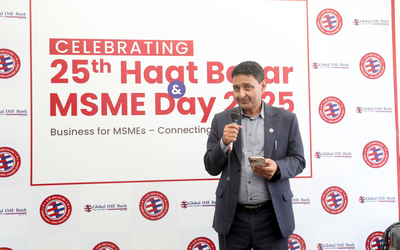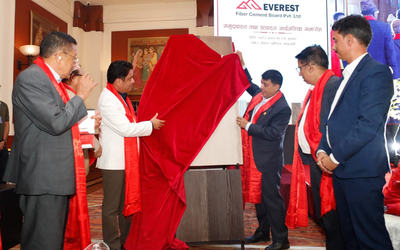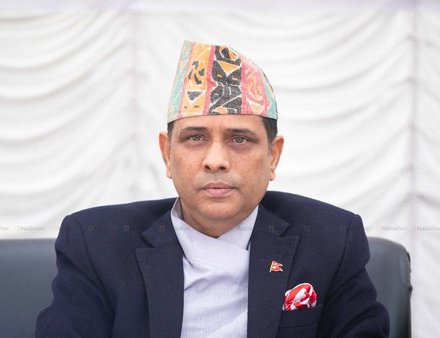
IMF’s Executive Board Completes the Fourth Review of Nepal's Extended Credit Facility. The IMF Executive Board completed the fourth review under the Extended Credit Facility (ECF) Arrangement for Nepal, providing the country with access to SDR 31.4 million (about US$ 41.3 million.
Thanks to certain significant actions by the Ministry of Finance, Nepal's economy has seen positive advancements. The latest report from the International Monetary Fund (IMF) recognizes Nepal's efforts in executing the program, even in the face of a difficult political situation.
Efforts to revive Nepal's economy are gaining momentum, with officials from the finance ministry finding the IMF's ruling a positive development. "The IMF's approval of the Extended Credit Facility (ECF) for Nepal, granting the nation access to SDR 31.4 million, is a welcome development for Nepal's financial sector," remarked finance secretary Madhu Kumar Marasini, who has been diligently working towards securing IMF ECF approval. "We are all collaborating and making strategic decisions to steer the economy back on course."
Following a slowdown last year, economic activity has started to pick up and the recovery is expected to gather steam, supported by cautiously accommodative monetary policy stance, planned increase in capital expenditure in the FY2024/25 budget, additional hydropower generation, and continued increase in tourist arrivals.
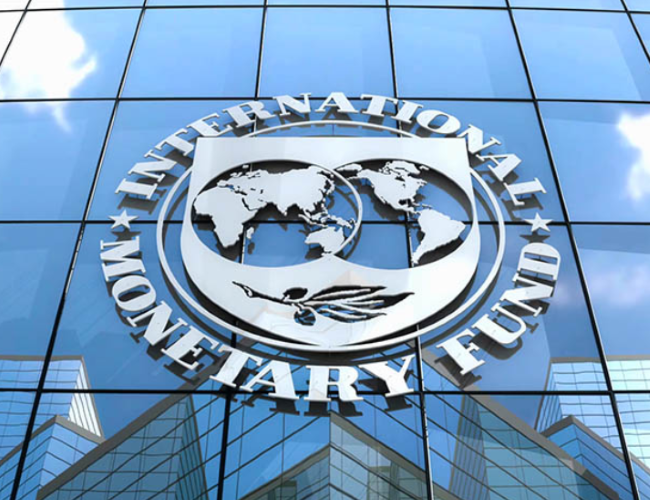
IMF’s Decision
On July 9, 2024, the Executive Board of the International Monetary Fund (IMF) completed the fourth review under the four‑year Extended Credit Facility (ECF) for Nepal, allowing the authorities to withdraw the equivalent of SDR 31.4 million (about US$ 41.3 million). This brings total disbursements under the ECF for budget support thus far to SDR 188.3 million (about US$ 247.7 million).
The ECF arrangement for Nepal was approved by the Executive Board on January 12, 2022 (see Press Release No. 22/6 ) for SDR 282.42 million (180 percent of quota or about US$ 371.6 million). Nepal has made good progress with implementation of the program, which has helped mitigate the impact of the pandemic and global shocks on economic activity, protect vulnerable groups, and preserve macroeconomic and financial stability. The program is also helping to catalyze additional financing from Nepal’s development partners.
The economy continues to face challenges as growth, projected around 3 percent in FY2023/24, remains below potential in the context of subdued domestic demand and post‑pandemic balance sheet repairs. Economic activity is expected to pick up with growth reaching 4.9 percent in FY2024/25, supported by stronger domestic demand. The cautiously accommodative monetary policy stance, planned increase in capital expenditure in the FY2024/25 budget, additional hydropower generation, and a continued increase in tourist arrivals are expected to boost domestic demand and growth. Inflation is expected to remain within the Nepal Rastra Bank’s (NRB) target ceiling of 5.5 percent.
Following the Executive Board discussion, Bo Li, Deputy Managing Director and Acting Chair, made the following statement:
“Nepal has made important strides on its economic reform agenda. Decisive actions in monetary policy, bank regulation and rolling off COVID support policies played a major role in overcoming urgent balance of payments pressure in FY2021-22. Reserves continue to rise without the need to use distortive import restrictions. Fiscal discipline was maintained in FY2022-23 and so far in FY2023-24, despite revenue shortfalls. Bank supervision and regulation have improved with the rolling out of new supervisory information systems, the Working Capital Loan Guidelines and Asset Classification Regulations. Nepal’s medium-term outlook remains favorable as strategic investments in infrastructure, especially in the energy sector, are expected to support potential growth.
“Nepal’s commitment to strengthen its AML/CFT framework is welcome. Amendments to a set of fifteen laws, including on money laundering, have been recently enacted—and secondary legislation is under preparation—to bring Nepal’s AML/CFT legal framework in line with international standards. It remains critical to ensure the effectiveness of the new legal framework. Reforms to implement the 2021 IMF Safeguards Assessment recommendations regarding the Nepal Rastra Bank (NRB) Act and NRB audit are a priority.
“Continued progress on the structural front remains needed to foster investment and more inclusive growth. These include improving the business climate, building human capital, and continuing to improve social safety nets, in particular aiming for full execution of the child grant budget, followed by an expansion of the program to all districts in Nepal.”
IMF decision has enhanced the credibility of Nepal’s economic sector which has been making progress to back in the track.
- MELAMCHI WATER SUPPLY: No Interruption During Monsoon
- Jun 25, 2025
- KOREAN RETURNEES: Successful Integration
- Jun 25, 2025
- UPPER TRISHULI-1: Engaging With Local
- Jun 25, 2025
- IME GROUP: Twenty Five Years Of Journey
- Jun 24, 2025
- NEPAL’S AIR POLLUTION: A Growing Health Concern
- Jun 24, 2025



